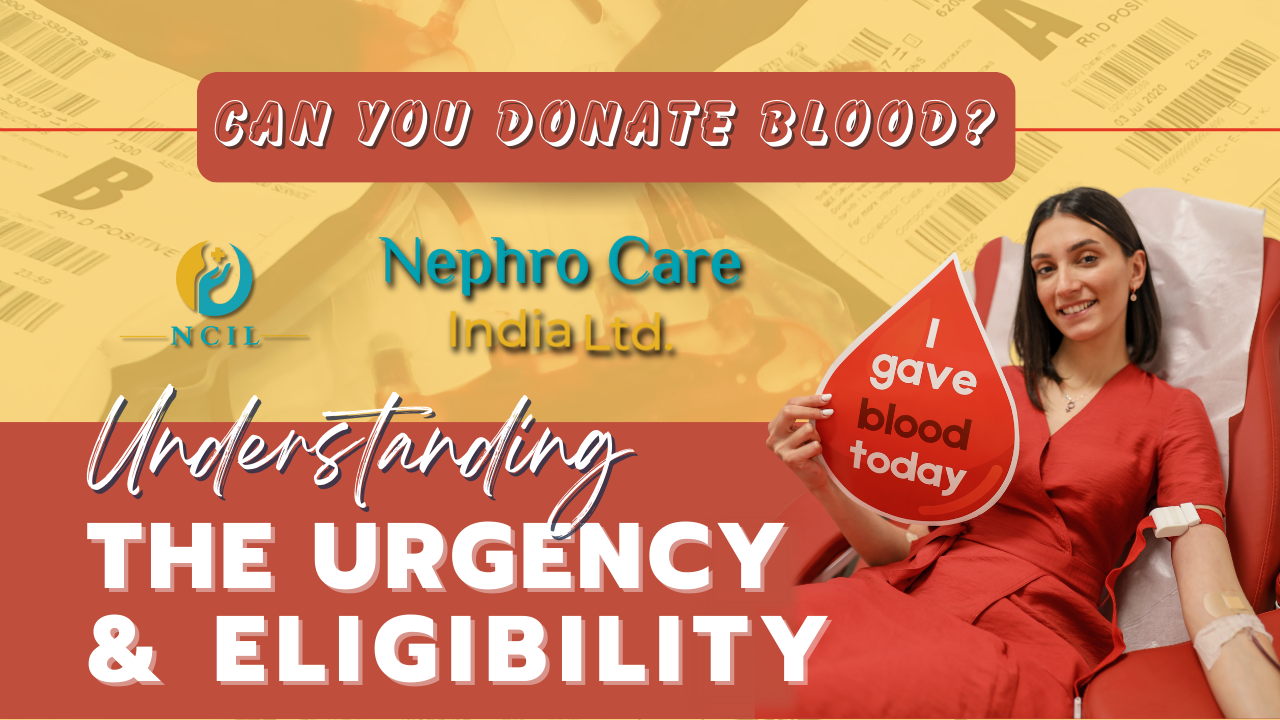
Blood donation is not just a technical act; it is a connection that unites us all in an almost invisible thread of unity. Every second, somewhere in the world, a patient requires a blood transfusion—for a major operation, cancer treatment, anemic illness, or as a result of a catastrophe. India requires an annual average of 14.6 million blood units but consistently faces a shortage of 1 million units. No matter the advancements in technology, voluntary donations are the only true solution. Regular blood donation prevents the loss of numerous lives and fosters togetherness and responsible citizenship.

This blog provides detailed information about the eligibility requirements for blood donors, the procedures involved, and the critical importance of matching the blood group of the donor and the patient to ensure safe blood transfusions. Join us to learn how one simple act of generosity can make an unparalleled difference in countless lives.
According to the NBTC’s Voluntary Blood Donation Program, you must meet several basic criteria to ensure the safety of both donors and recipients and be eligible to donate blood:
To manage your blood pressure, please read the blog below:

Join our diet group to achieve a healthy lifestyle.
Certain factors can make you ineligible to donate blood:
Knowledge of blood group compatibility is important in blood circulation particularly in blood donation and transfusion. The ABO System and the Rh Factor are central to the process. For instance, if you are of blood type O, then you are an universal donor and you can be donate to those with A, B, AB, and O blood types; although you can only accept O blood type. If you are of A blood type, then you can donate to persons with A and AB blood types and you can accept only A and O blood types. People with B blood type can only donate their blood to type B and AB individuals but can receive blood only from B and O blood groups. Blood type AB means you can accept any type of blood but always give O type only to AB individuals.

Your Rh factor makes it even more specific; if you are Rh-positive, your blood type can both accept and produce Rh-positive and Rh-negative blood types. If the recipient of the blood is Rh-negative, then only Rh-negative blood should be administered to prevent Rh immune reactions. Proper grouping and matching of blood helps avoid poor outcomes and safeguard the donors and the recipients.
All blood we donate undergoes mandatory screening for blood-borne diseases, including hepatitis, syphilis, and HIV.
The main types of blood donation include: The main types of blood donation include:

In conclusion, the demand for blood donations is perpetual and crucial for sustaining countless lives worldwide. Every day, numerous individuals, whether undergoing surgeries, battling cancer, facing emergencies, or managing chronic conditions like thalassemia, rely on the generosity of blood donors. The number of recipients in need of blood is significant, and many face regular crises due to shortages in blood supply. By donating blood, you not only contribute to immediate medical interventions but also provide hope and support to those enduring critical health challenges. Your decision to donate blood can truly make a lifesaving difference, ensuring that patients receive the essential care they desperately require.
Please join in this noble effort and become part of the unseen bond that unites us all, one donation at a time, ensuring life-saving blood is available whenever and wherever needed.
2024-09-10 15:24:23
Ali Ahsan Nishat
I have donated blood 39 times.
Glad to hear from you. Stay informed with upcoming health-related blog updates at https://www.drpratim.com/blogs/